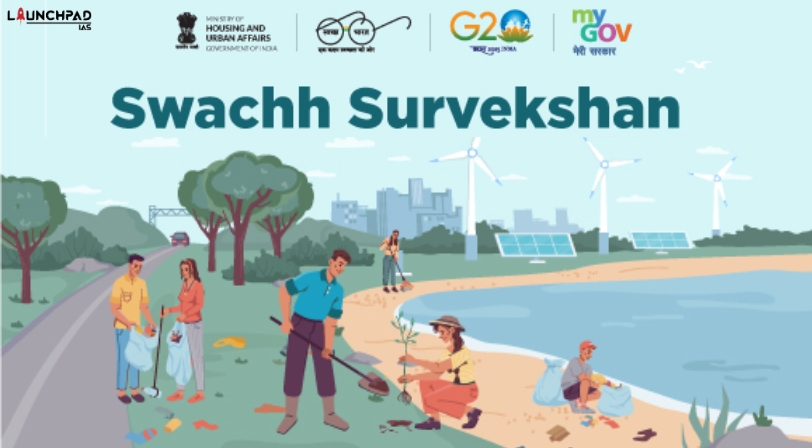- Swachh Survekshan is an annual survey of cleanliness, hygiene, and sanitation in cities and towns across India.
- It was launched as part of the Swachh Bharat Abhiyan, which aimed to make India clean and free of open defecation by 2nd October 2019.
- The first survey was undertaken in 2016.
- Conducted by: Ministry of Housing and Urban Affairs (MoHUA) with Quality Council of India (QCI) as its implementation partner.
- Goal: The primary goal of Swachh Survekshan is to encourage large-scale citizen participation and create awareness amongst all sections of society about the importance of working together toward making towns and cities better places to reside in.
- Parameters: The cities have been ranked based on three broad parameters: service level progress, citizen’s voice, and certification.
- SS 2023 is curated towards achieving circularity in waste management. The survey would give priority to the principle of the 3Rs – Reduce, Recycle, and Reuse.
- Indicators have been introduced with additional weightage on emphasizing the need for a phased reduction of plastic, plastic waste processing, encouraging waste to wonder parks, and zero waste events.
- The cities would also be assessed on dedicated indicators on the issues of ‘Open Urination’ (Yellow Spots) and ‘Open Spitting’ (Red Spots), being faced by the cities.
What is Swachh Bharat Mission 2.0?
- SBM-U 2.0, announced in Budget 2021-22, is the continuation of SBM-U’s first phase.
- The government is trying to tap safe containment, transportation, disposal of fecal sludge, and septage from toilets. It will be implemented over five years from 2021 to 2026 with an outlay of Rs. 1.41 lakh crore.
- It focuses on source segregation of garbage, reduction in single-use plastic and air pollution, by effectively managing waste from construction and demolition activities and bioremediation of all legacy dump sites.
- Under this mission, all wastewater will be treated properly before it is discharged into water bodies, and the government is trying to make maximum reuse a priority.
Related Links: National Clean Air Programme


